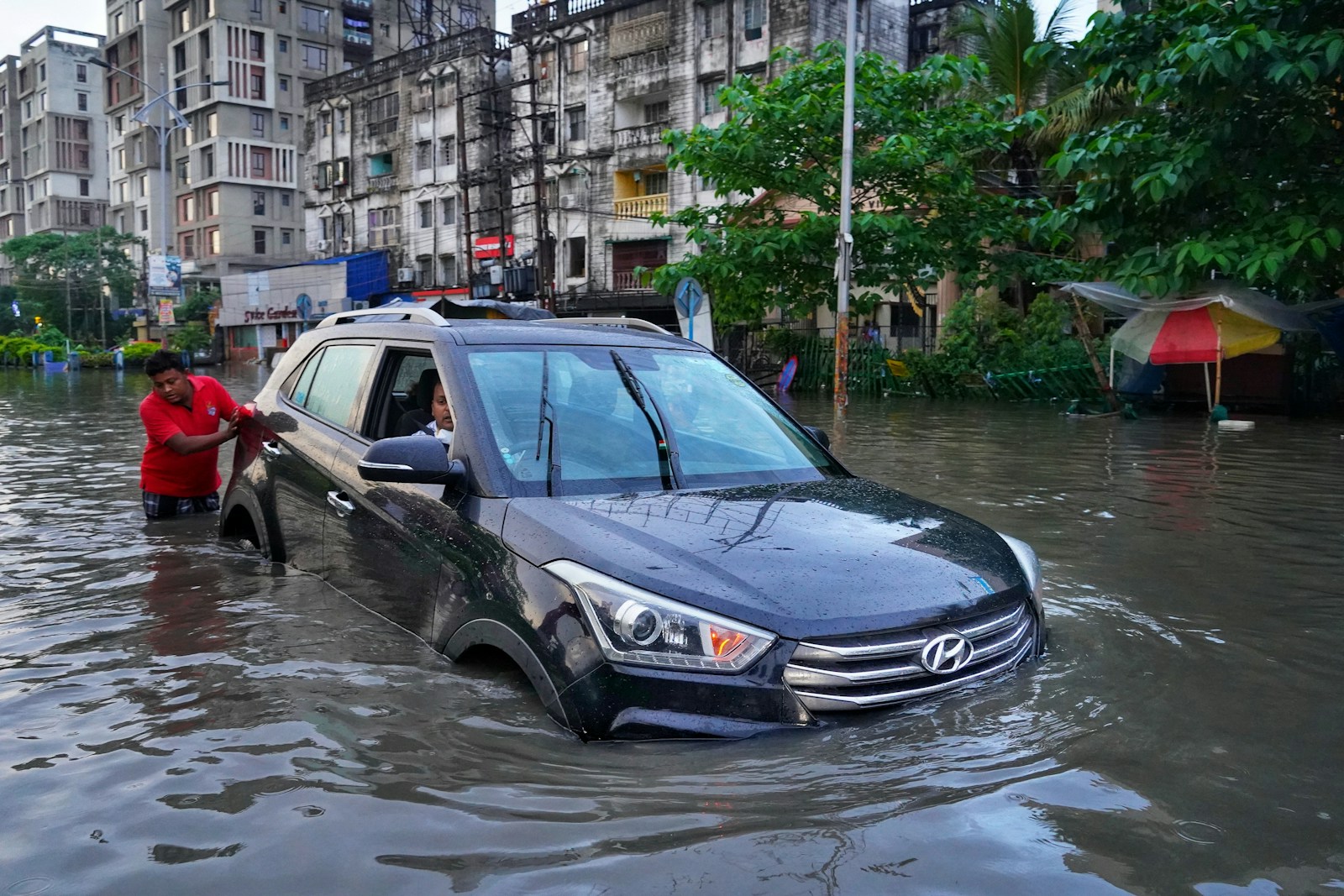
diluviar

flood
The Spanish word 'diluviar' is a verb in its infinitive form. In English, it means 'to flood'. It could be used to refer to a large amount of water covering an area that is usually dry, or metaphorically to refer to an overwhelming amount or number. It comes from the noun 'diluvio', meaning 'flood'. An example of usage is 'Si sigue lloviendo asi, va a diluviar.', which in English would be 'If it keeps raining like this, it's going to flood.'
Example sentences using: diluviar
Va a diluviar mañana.

It's going to pour tomorrow.
Used to express that it will rain heavily the next day.
Creo que va a diluviar.

I think it's going to pour.
Used to indicate the speaker's belief that it will shortly rain heavily.
Empezó a diluviar justo cuando salí.

It started to pour just as I left.
Used to describe the situation when it starts raining heavily the moment the speaker left.
Esperamos a que dejara de diluviar.

We waited for it to stop pouring.
Used to express waiting for the heavy rain to stop.
Deberíamos irnos antes de que empiece a diluviar.

We should leave before it starts pouring.
Used to suggest leaving before heavy rain starts.
Si no hubiera empezado a diluviar, habríamos jugado al fútbol.

If it hadn't started pouring, we would have played soccer.
Used to express a hypothetical situation that would have occurred if it hadn't started raining heavily.
No me gustaría que empezara a diluviar ahora.

I wouldn't want it to start pouring now.
Used to express the speaker's preference that it doesn't start raining heavily at the present moment.
Voy a llevar un paraguas por si acaso empieza a diluviar.

I'm going to take an umbrella in case it starts pouring.
Used to describe the action of taking an umbrella because it might start raining heavily.
El pronóstico del tiempo dice que podría diluviar esta noche.

The weather forecast says it could pour tonight.
Used to relay information from a weather forecast indicating possible heavy rain in the evening.
Empieza a diluviar cada vez que voy de excursión.

It starts to pour every time I go on a trip.
Used to express a recurring event where it starts raining heavily whenever the speaker goes on a trip.